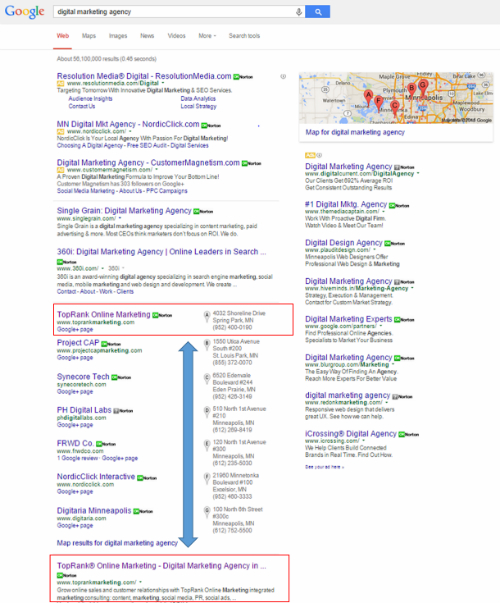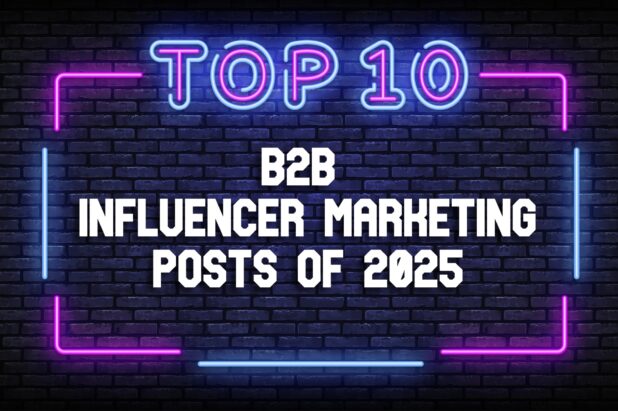What does search fit in your digital marketing program? If you answered ‘with the SEO department’, you’re certainly not alone, as many marketers and businesses owners still use the traditionally siloed approach to search marketing, leaving the SEO folks to do their work, separate from the social, paid and content marketing teams.
However, in the ultra-competitive world of search marketing, integration of tactics under a unified digital marketing strategy is becoming more important than ever.
Similar to mobile accessibility, 2015 is the year when integration of search with the overall digital marketing strategy will increasingly move from a ‘nice to have’ to an essential. Brands that embrace an integrated approach will be rewarded.
Owning Mindshare
A key objective of any digital marketing initiative should be to create or strengthen associations between your brand and relevant topics, opinions and feelings. Whether it’s a blog post, Yelp review, Facebook status, Google Places Profile or YouTube video, any and all touch points that people have with your brand content are an opportunity to leave a lasting impression and motivate future actions (like becoming a customer).
Capturing mindshare for your brand’s key topics means your content needs to reach the right people, at the right time and leave a lasting positive impression. In other words, you need to be the best answer.
But first, you need to understand the question, who is asking and how. Then it’s simply a matter of translating (optimizing) your content into the language your potential customers are already using (or may use in the future).
Search marketing is a perfect solution to this challenge because it seeks to both understand the question and provide the best answer, where it will be found.

Why Let Search Reap all the Benefits?
Just because search marketing holds the keys to understanding and reaching your target audience doesn’t mean its principles and best practices can’t benefit other areas of your digital marketing department.
There are variations between channels in how people discover great brand content and the formats they prefer, but there is most certainly consistency in their core questions and pain points whether they are on Twitter or using a search engine. Tweaking the format and optimization elements to fit the channel makes perfect sense; altering the key message does not.
Below are just a few examples of how a solid search marketing strategy can benefit other tactics.
Social Media Marketing
Social media marketing is a huge opportunity for the application of search marketing best practices, most notably keyword strategy. Given the incredible volume of content on any of the popular social networks today, people are using search functionality to navigate and find what they’re looking for more than ever.
As with organic search, including relevant keywords in your social content and profiles greatly increases the chances of being seen by the right audience at the right time on social channels. In addition, optimized social content is increasingly being indexed and found in organic search, in particular if it’s posted to Google+ or Twitter.
Offline Events
Thanks to live blogging, event hashtags, live feeds and the near ubiquitous smartphone, there may not be any truly ‘offline’ events or content anymore, which is why it’s important to consider search in your event strategy.
Your event related content should align closely with your search strategy, including pre-promotional materials, booth promotions, presentation and interview transcripts, videos, social messages and downloadable materials.
PR and Earned Media
Regardless of whether press releases and other ‘earned media’ content lives on your website or externally, it’s a no-brainer to make sure it’s optimized in a manner consistent with your search strategy.
Earned media mentions from credible third party sources can be very effective at influencing brand perception, particularly when they show prominently in relevant searches (i.e. for keywords and topics that sync up with your content strategy).
Granted, generally you won’t have the same level of control compared to ‘owned media’ but if the balance of your brand content is well optimized per your keyword messaging strategy, that is likely to influence the way your company is talked about by third party influencers, which increases the chances of earned media being on topic.
Universal Search Optimization
Most marketers know that ranking above the fold on page one in either natural or universal search for a keyword can do wonders for traffic and brand awareness, but did you know that the combination of appearing prominently in both natural and universal results can significantly increase these effects?
In fact, according to research from Google and Search Engine Land, this potent combination results in a 30% increase in brand awareness, perception of brand quality and purchase consideration.
In order to achieve this highly coveted ‘one two punch’ of search visibility, it’s critical to make sure any brand assets (e.g. images, videos, news content) are optimized consistently with your overall website search keyword strategy to give them the best chance of gaining visibility for consistent search topics.
These are just a few examples, but the point is that there really isn’t an area of digital marketing that search marketing best practices can’t benefit (please feel free to dispute that in the comments).

Live Together, Die Alone
Like the cast of the recently popular show “Lost,” a digital marketing department plays host to a varied cast of characters with different skills and motivations, who may not always get along.
In order to survive and thrive, it’s necessary to put differences aside and align towards a common goal. Allowing your digital marketing tactics to set up their own independent camps deep in the jungle of your company is asking for a war.

Here’s to 2015 being the year we fully integrate search into digital marketing.
Where does search fit into your 2015 marketing plan?
Want to learn more? Hear Evan speak about using SEO to improve search visibility at the PRNews Google Conference in San Francisco on February 11th.


